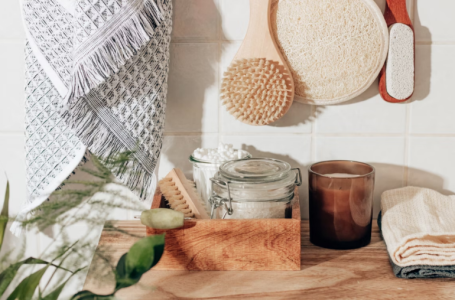8 everyday items still on store shelves—despite serious health warnings
- Replies 0
If you’ve ever strolled through the cleaning aisle or peeked under your sink, you'd be shocked by what's still legal to buy.
Many everyday products contain chemicals flagged by health experts—but they remain widely available, often with minimal warnings.
From sprays to sheets, the hidden risks inside common items are easy to overlook. We believe it's time to expose what’s really behind these labels and help you make safer choices.
1. Oven Cleaners With Lye and Ammonia
That “miracle” spray claiming to melt away grime often contains sodium hydroxide (lye) or ammonia—both known to irritate eyes, lungs, and skin. In poorly ventilated areas, the fumes can cause chemical burns or trigger asthma attacks, especially for vulnerable individuals.
These products are still legal and widely sold, even though safer, plant-based cleaners now exist. Just because it’s on the shelf doesn’t mean it should be under your sink.
2. Mothballs With Naphthalene
Mothballs might protect your sweaters, but some still contain naphthalene, a chemical that turns into toxic gas as it evaporates.
The vapors have been linked to cancer and serious respiratory issues in both humans and pets. Children are particularly at risk if they accidentally inhale or ingest one. Consider switching to cedar blocks or lavender sachets, which offer a natural and far safer solution.

3. Air Fresheners and Scented Plug-Ins
While artificial scents might make your home smell clean, many contain phthalates and VOCs that can linger and harm your health. These compounds have been tied to hormone disruption, asthma, allergic reactions, and even reduced lung function in children.
Despite their popularity, long-term health impacts of these products are rarely disclosed or regulated. Ventilation and natural odor absorbers like baking soda are safer alternatives.
4. Bleach-Based Mold Cleaners
Bleach is often marketed as the go-to solution for mold, but experts caution that it may do more harm than good. The fumes can worsen asthma and irritate the respiratory system, especially in enclosed or poorly ventilated areas.
Worse yet, bleach doesn’t fully penetrate porous surfaces like drywall, allowing mold to return. Vinegar-based or enzyme mold removers can clean effectively without the same health hazards.
Also read: Are your favorite products about to vanish? Why Chinese imports could soon disappear from US shelves
5. Teflon Nonstick Cookware
Nonstick cookware has been a kitchen favorite for decades, but some pans made with older Teflon coatings (containing PFOA) have raised red flags. When overheated, they can release toxic fumes that cause flu-like symptoms—a condition dubbed “Teflon flu.”
Though PFOA has been phased out in many products, older cookware still in use may pose risks. Unfortunately, many households are unaware that their pots and pans are outdated and potentially hazardous. Safer ceramic or stainless-steel options are worth considering.
6. Carpet Cleaners With Perchloroethylene
Professional-grade carpet cleaners may contain perchloroethylene, a solvent also used in dry cleaning that poses serious health risks. Exposure has been linked to dizziness, fatigue, liver damage, and long-term nervous system effects.
Even though it’s banned in some US states, it remains legal and easy to purchase in most areas. Choosing eco-certified or fragrance-free alternatives can drastically reduce exposure.
7. Dryer Sheets With Synthetic Fragrances
They might make your clothes smell fresh, but many dryer sheets are coated with chemicals like benzyl acetate and limonene. These compounds are known skin and respiratory irritants that can linger on clothing and trigger reactions.
Over time, continuous exposure may contribute to allergy flare-ups or chemical sensitivity. Reusable wool dryer balls offer a fragrance-free, chemical-free solution.
8. Weed Killers With Glyphosate
Popular products like Roundup contain glyphosate, a herbicide under growing scrutiny for its links to cancer, especially non-Hodgkin’s lymphoma. Despite lawsuits and global concern, glyphosate remains legal and widely used in American lawns and gardens.
Homeowners often underestimate how much residue stays behind on walkways, tools, and even kids' toys. Vinegar-based alternatives or manual weeding can help keep your lawn safe without the chemical risk.
Also read: Everyday household items could be harming your health—here’s how to stay safe
Why Are These Products Still Legal?
You may wonder, If these products are so harmful, why are they still allowed on the market? The answer lies in outdated chemical regulations, limited enforcement, and aggressive industry lobbying that often slows public health reforms.
US safety laws have not kept pace with scientific evidence, and many household goods escape rigorous review. This leaves the responsibility on consumers to stay informed, question labels, and make better choices for their families.
Read next: Are alarm clocks and photo frames secretly spying on you? The hidden ways your everyday items could be recording you (and why it’s totally legal)

What other everyday products do you think should be banned or reformulated? Have you made a switch that improved your home’s safety? Comment below and help others make informed, healthier choices.
Many everyday products contain chemicals flagged by health experts—but they remain widely available, often with minimal warnings.
From sprays to sheets, the hidden risks inside common items are easy to overlook. We believe it's time to expose what’s really behind these labels and help you make safer choices.
1. Oven Cleaners With Lye and Ammonia
That “miracle” spray claiming to melt away grime often contains sodium hydroxide (lye) or ammonia—both known to irritate eyes, lungs, and skin. In poorly ventilated areas, the fumes can cause chemical burns or trigger asthma attacks, especially for vulnerable individuals.
These products are still legal and widely sold, even though safer, plant-based cleaners now exist. Just because it’s on the shelf doesn’t mean it should be under your sink.
2. Mothballs With Naphthalene
Mothballs might protect your sweaters, but some still contain naphthalene, a chemical that turns into toxic gas as it evaporates.
The vapors have been linked to cancer and serious respiratory issues in both humans and pets. Children are particularly at risk if they accidentally inhale or ingest one. Consider switching to cedar blocks or lavender sachets, which offer a natural and far safer solution.

8 everyday items still on store shelves—despite serious health warnings. Image source: Svitlana / Unsplash
3. Air Fresheners and Scented Plug-Ins
While artificial scents might make your home smell clean, many contain phthalates and VOCs that can linger and harm your health. These compounds have been tied to hormone disruption, asthma, allergic reactions, and even reduced lung function in children.
Despite their popularity, long-term health impacts of these products are rarely disclosed or regulated. Ventilation and natural odor absorbers like baking soda are safer alternatives.
4. Bleach-Based Mold Cleaners
Bleach is often marketed as the go-to solution for mold, but experts caution that it may do more harm than good. The fumes can worsen asthma and irritate the respiratory system, especially in enclosed or poorly ventilated areas.
Worse yet, bleach doesn’t fully penetrate porous surfaces like drywall, allowing mold to return. Vinegar-based or enzyme mold removers can clean effectively without the same health hazards.
Also read: Are your favorite products about to vanish? Why Chinese imports could soon disappear from US shelves
5. Teflon Nonstick Cookware
Nonstick cookware has been a kitchen favorite for decades, but some pans made with older Teflon coatings (containing PFOA) have raised red flags. When overheated, they can release toxic fumes that cause flu-like symptoms—a condition dubbed “Teflon flu.”
Though PFOA has been phased out in many products, older cookware still in use may pose risks. Unfortunately, many households are unaware that their pots and pans are outdated and potentially hazardous. Safer ceramic or stainless-steel options are worth considering.
6. Carpet Cleaners With Perchloroethylene
Professional-grade carpet cleaners may contain perchloroethylene, a solvent also used in dry cleaning that poses serious health risks. Exposure has been linked to dizziness, fatigue, liver damage, and long-term nervous system effects.
Even though it’s banned in some US states, it remains legal and easy to purchase in most areas. Choosing eco-certified or fragrance-free alternatives can drastically reduce exposure.
7. Dryer Sheets With Synthetic Fragrances
They might make your clothes smell fresh, but many dryer sheets are coated with chemicals like benzyl acetate and limonene. These compounds are known skin and respiratory irritants that can linger on clothing and trigger reactions.
Over time, continuous exposure may contribute to allergy flare-ups or chemical sensitivity. Reusable wool dryer balls offer a fragrance-free, chemical-free solution.
8. Weed Killers With Glyphosate
Popular products like Roundup contain glyphosate, a herbicide under growing scrutiny for its links to cancer, especially non-Hodgkin’s lymphoma. Despite lawsuits and global concern, glyphosate remains legal and widely used in American lawns and gardens.
Homeowners often underestimate how much residue stays behind on walkways, tools, and even kids' toys. Vinegar-based alternatives or manual weeding can help keep your lawn safe without the chemical risk.
Also read: Everyday household items could be harming your health—here’s how to stay safe
Why Are These Products Still Legal?
You may wonder, If these products are so harmful, why are they still allowed on the market? The answer lies in outdated chemical regulations, limited enforcement, and aggressive industry lobbying that often slows public health reforms.
US safety laws have not kept pace with scientific evidence, and many household goods escape rigorous review. This leaves the responsibility on consumers to stay informed, question labels, and make better choices for their families.
Read next: Are alarm clocks and photo frames secretly spying on you? The hidden ways your everyday items could be recording you (and why it’s totally legal)
Key Takeaways
- Many common household items—like oven cleaners, air fresheners, and mothballs—contain chemicals linked to cancer, asthma, and hormone disruption, yet they remain legal and easy to purchase.
- Health risks include exposure to VOCs, synthetic fragrances, and solvents such as perchloroethylene and glyphosate, which are often unregulated or poorly labeled.
- Safer alternatives exist for all eight product categories, including natural cleaners, wool dryer balls, vinegar herbicides, and ceramic cookware.
- Consumer awareness and label literacy are key, as outdated laws and industry lobbying have kept many hazardous items on the market.






